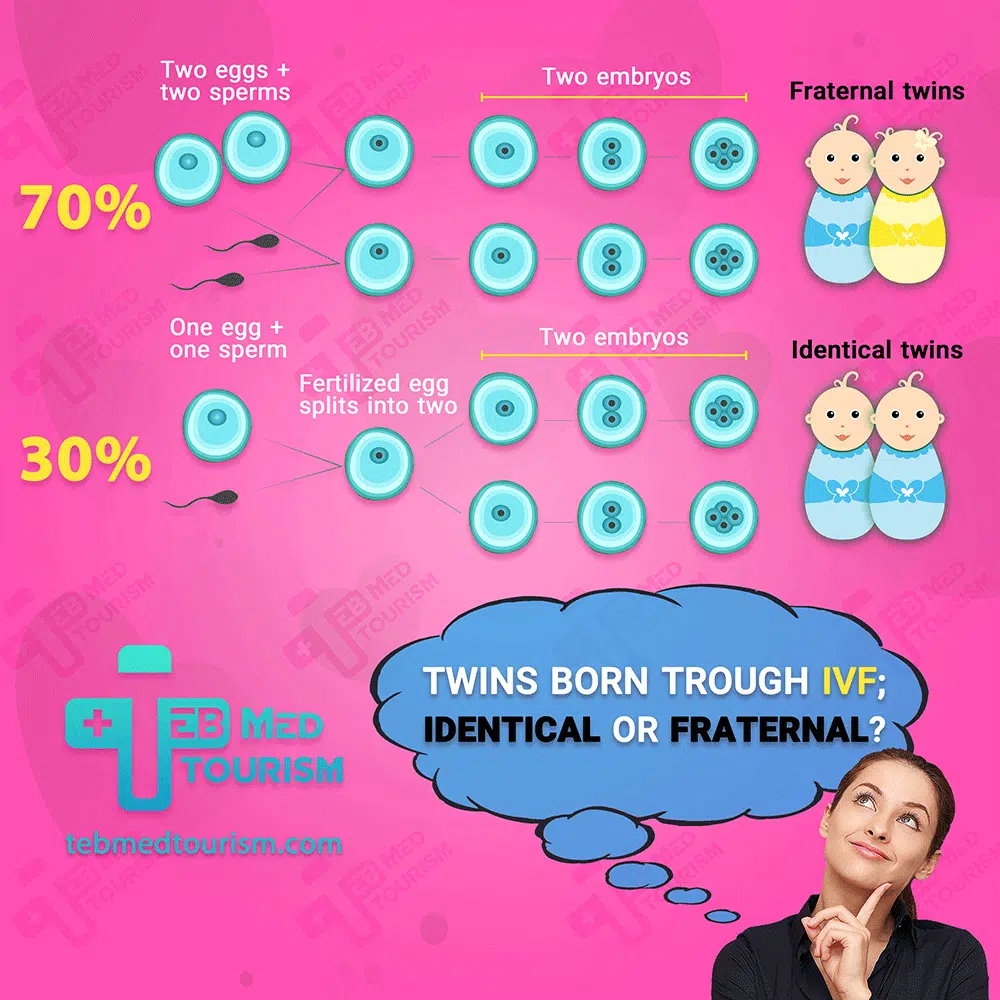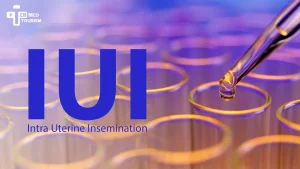What things cause IVF not to work? This can be a common question among couples who consider using IVF technology. Sometimes after spending much time and cost, the IVF process fails, and this makes you feel angry and devastated. It is totally normal to feel grief for a little while, but you should not blame yourself or your partner about it because many reasons that are sometimes out of our control can cause IVF not to work.
IVF process is a complex procedure that includes lots of variables that need to be ideal so that the process works. To get a suitable result, it often requires more than one cycle. The specialist looks at the factors involved to know what happened and what should be changed in order to increase the chance of success in the next attempt.
Younger women who are under 35 often have a higher chance of IVF success that is about 40 percent. According to a study, it takes on average 3 cycles to get pregnant through the IVF procedure. After 3 attempts, IVF is around 34 to 42 percent successful. This percent can go higher as we learn more about optimizing the involved factors.
Here we’ve put together the most common reasons of In-Vitro Fertilization failure.
Why does IVF fail?
Age of the Eggs:
Aging affects the eggs. As the age of women goes up, the quality of their eggs decreases. A woman’s fertility begins to get worse at about 35, and this affects her chances of IVF success as well. For young women under the age of 35, the success rate of IVF is about 45 percent. For older women who are between 40 and 42, the success rate can be about 15 percent. In IVF procedure, the age of the egg is presumably more important than the age of the mother. Thus, older women can have a greater chance of success by undergoing the egg donation process and using the eggs of a younger donor.
Embryo selection:
Embryos that are created by fertilization of egg and sperm need to be selected and implanted into the uterus. The embryologists choose embryos based on three criteria, which are cell stage, embryo grade, and the cell division rate.
Previous studies show that those embryos that have reached at least 6 cell stages have a better chance of success than those having 5 or fewer cells. Also, the embryos that have a better grade (grade 1 or 2) are better for implantation than the lower-grade embryos (3 or 4). In addition, an embryo that gradually gets to the stage of 8 cells by the third day is much more likely to do well than an embryo that delayed the growth until the end of the period.
The Embryo quality:
the quality of embryo is one of the most crucial factors of IVF process so that a low-quality embryo will cause IVF failure. Embryologist tries to find the best embryos in order to implant them into the uterus. Sometimes even embryos that look good in the laboratory may have flaws that eventually cause them die. In almost all the cases, this failure is because of the embryo quality not the uterus.
Problems with egg retrieval and embryo transfer:
egg retrieval and embryo transfer are important to the success of IVF cycle. Retrieving fewer eggs than what is expected or even failing in the egg retrieval process can be among major causes of IVF failure. Besides, in the embryo transfer procedure the related physician must implant the embryos in the correct location. Experienced doctors must be selected for this process.
IVF laboratory environment:
the IVF laboratory is a highly controlled environment in which whatever is experienced inside the womb is simulated. IVF staff must carefully observe the factors involved in the laboratory environment such as oxygen and carbon dioxide concentration, humidity, temperature, light, etc. Even a small level of difference from what an embryo experience in the uterus environment, can lead to embryo’s death.
Ovaries Response:
producing enough eggs for those women who are over 37 or other women who have high follicle stimulating hormone (FSH) can be difficult. The number of eggs and their quality and sensitivity to stimulating medicines can contribute to successful IVF. As the age goes higher, follicles get less sensitive to the FSH hormones that stimulate their growth. Thus by decreasing the chances of eggs growth, there will be a higher chance for IVF failure. In this case, your doctor may recommend you a change of medication.
Chromosomal Disorders:
embryos that have chromosomal abnormalities can lead to failure whether they are naturally conceived or in a laboratory. Each typical egg and sperm has 23 chromosomes and more or less than this number can cause problems. As the age goes higher, chromosomal abnormalities gets more likely, so that they may be present in 75 percent of the eggs of a woman in her mid-40s. There are also sperm abnormalities that can be an important factor for IVF failure. By the help of IVF + preimplantation genetic diagnosis (PGD), these genetic disorders can be detected in the early stages.
Abnormal sperm:
in IVF cycle, sperm plays an important role. In the process of fertilization, sperm has to get into the egg. In order to do so, they have to be motile, it means the tail of the sperm must be able to push the sperm across the woman’s reproductive tract to the egg. When sperm reaches the egg, it releases a kind of enzyme to make a hole in the outer membranes of the egg in order to penetrate the egg. So chromosomally abnormal sperm cannot be able to fertilize an egg successfully.
By the invention of Intracytoplasmic sperm injection (ICSI), doctors are able to help men with low sperm counts, weak motility or few normal sperm achieve fertilization and pregnancy.
Lifestyle:
You need to have a healthy lifestyle before getting your treatments started. Doing a routine exercise, having a variety of nutrient food and taking vitamin can help overall health and the quality of gametes. Women who suffers from obesity and are overweight and also women who are underweight decrease the chance of a successful IVF cycle. You have to maintain a healthy weight in order to make a positive attempt towards getting pregnant. In addition, you have to quit smoking at least 3 months before beginning your treatments. Smokers need twice as many IVF cycles for fertilization and have the higher chance of miscarriage.

Are there any solutions?
IVF cycle is a complex process which can have so many factors involved. However, there are still some actions available to impact on the outcome.
Genetic testing or (PGT) is usually done before starting IVF to know if there is any chromosomal abnormality. The used fertility medication and hormones can be modified and their dosages can be adjusted to have their best possible effects. You may need to change your lifestyle in order to improve your general health. You may even consider using donors or a surrogate depending on your needs.
The important thing during the procedure is that you should not get disappointed. Before starting, you have to expect a period of trial and error in advance. By understanding what happened in your latest cycle, you can have plans for your next round.
In spite of all the challenges, in vitro fertilization (IVF) is still highly successful. Researches showed that the chances of success in IVF cycle is the same in the first 3 attempts. So if two of your IVF attempts failed, there is still a high chance of success in the third one. But after three IVF failures, it is better to consider other treatment options.
If you are considering undergoing the IVF process, keep your hopes up because We at TebMedTourism offer you the best treatment packages according to your need. We can present you the easiest path of parenthood using our high-quality fertility technologies, well-equipped facilities and best professional physicians at the most affordable costs.













